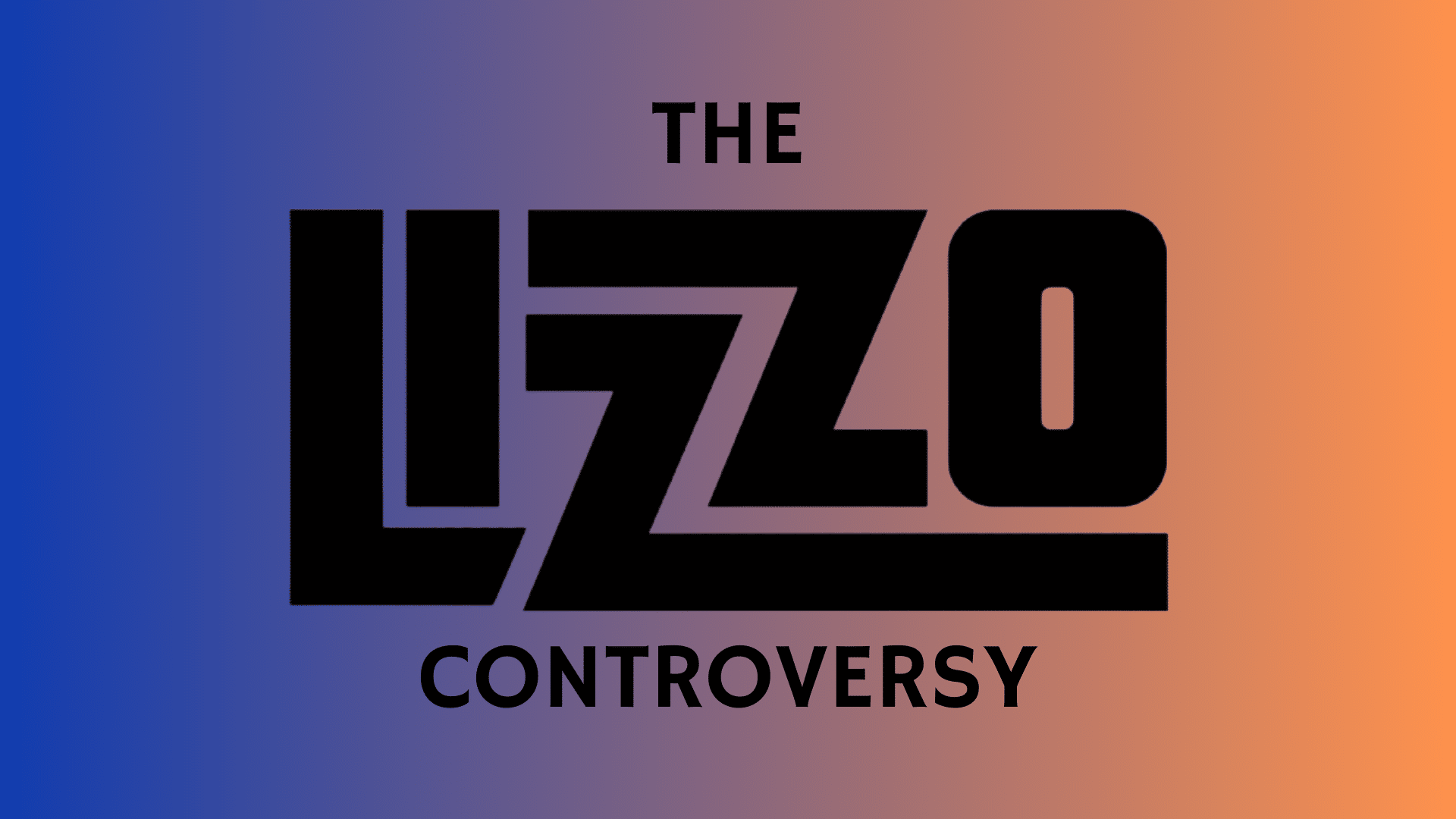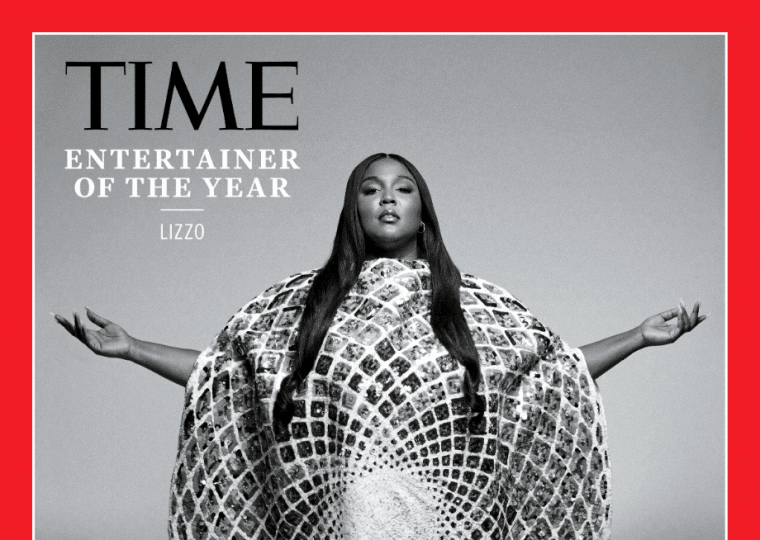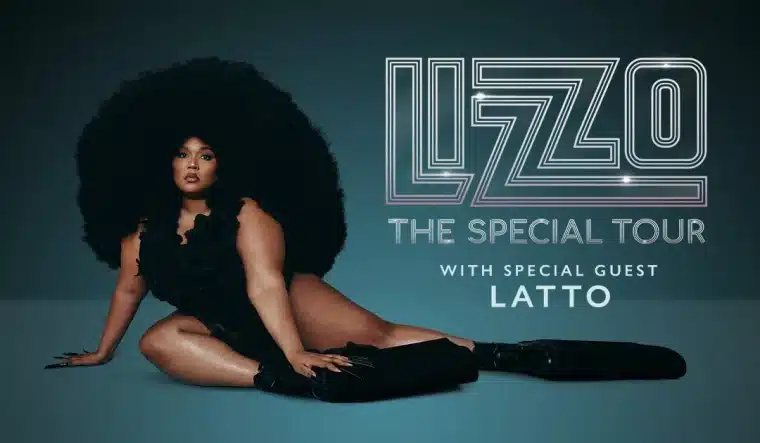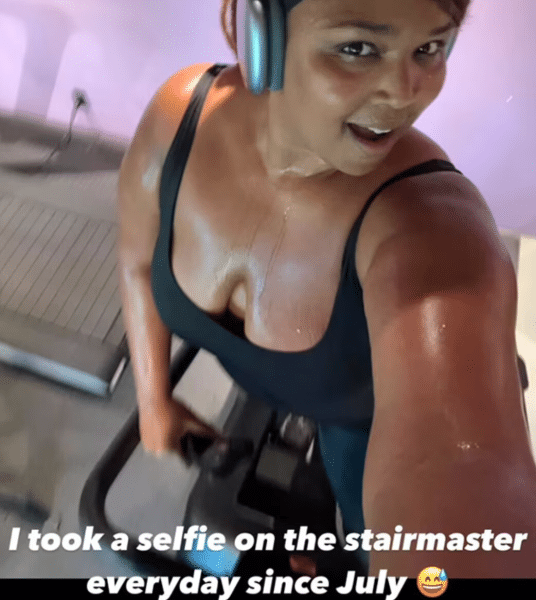The Lizzo controversy has captured widespread attention, involving serious allegations and significant figures in the music industry. Central to this controversy are allegations of sexual harassment, racial discrimination, and a hostile work environment by former employees against the renowned artist Lizzo and her management team.
In this article, you’ll be presented with the complete facts surrounding the Lizzo controversy. Business2Community’s detailed exploration draws from reputable sources, aiming to provide a balanced view of the various claims and responses from all parties.
Lizzo Controversy – Key Facts
- The Lizzo controversy involves serious allegations of sexual harassment, racial discrimination, and the creation of a hostile work environment, made by former dancers during Lizzo’s Special Tour.
- The plaintiffs included former backup dancers Arianna Davis, Crystal Williams, and Noelle Rodriguez, who brought forward these allegations, alongside public criticism and media scrutiny.
- Lizzo maintains her innocence, emphasizing her commitment to artistic freedom and denying the accusations of hiring sex workers and creating a toxic work environment.
The Story of the Lizzo Controversy
The controversy surrounding Lizzo centers on a lawsuit filed by three former dancers alleging serious misconduct including sexual harassment and the creation of a hostile work environment. This situation raises questions about the disparity between Lizzo’s public persona as an advocate for body positivity (and positivity in general) and the claims made against her.
Who is Lizzo?
Lizzo, born Melissa Jefferson on April 27, 1988, in Houston, Texas, is a celebrated pop artist known for her powerful voice, dynamic performances, and commitment to body positivity and inclusivity. She gained widespread recognition with hits like Truth Hurts, Juice, and Good as Hell, which have resonated with fans for their uplifting messages and catchy melodies.
After moving to Minneapolis in 2011, Lizzo released her debut album, Lizzobangers, and began to gain traction in the music scene. In 2019, she won Time Magazine’s Entertainer of the Year, and in 2023, she won the Grammy Award for Record of the Year for About Damn Time.
In addition to her music career, Lizzo is known for her advocacy for body positivity, often challenging societal beauty standards, particularly for plus-size women and women of color.
Lizzo’s vibrant persona and commitment to self-love have made her a prominent figure in contemporary pop culture. However, her recent legal controversies have sparked discussions about the discrepancies between her public image and the allegations made against her.
Details of the 2023 Lawsuit
On August 1, 2023, Lizzo’s former backup dancers — Crystal Williams, Arianna Davis, and Noelle Rodriguez — filed a lawsuit at the Los Angeles Superior Court. They accused the singer, her production company (Big Grrrl Big Touring Inc.), and dance captain Shirlene Quigley of creating a hostile work environment during Lizzo’s tour.
The lawsuit claims Lizzo’s camp intentionally interfered with dancers’ performances and pressured them to attend inappropriate private events. Among the most serious accusations were claims of sexual, religious, and racial harassment, discrimination, assault, and false imprisonment.
Sworn statements revealed how Lizzo’s management team treated the dancers during the tour. The lawsuit accuses Lizzo of forcing cast members into attending sex shows at Amsterdam’s Bananenbar in the Red Light District, where they were allegedly pressured to engage in inappropriate activities. The dancers’ attorneys argue that Lizzo performing in such environments crossed professional boundaries and blurred lines of acceptable conduct.
Both Davis and Williams stated that Lizzo fired them from their positions on the spot. Davis was fired immediately after she confessed to recording a meeting. When Rodriguez expressed feeling disrespected by how the meeting was handled, the lawsuit claims Lizzo reacted aggressively by approaching Rodriguez, shouting profanities, cracking her knuckles, and clenching her fists.
The plaintiffs alleged that other dancers were too intimidated to speak out about their experiences out of fear of losing their jobs. They expressed a commitment to ensuring that future dancers working with Lizzo would not have to endure similar treatment, aiming to shed light on the broader issues of abuse in the entertainment industry.
Davis claims that during their European tour, Lizzo pressured her to attend nude shows that conflicted with her religious beliefs. She recounted feeling coerced into inappropriate situations, such as touching a naked performer’s breasts while Lizzo allegedly led chants for her to participate.
Before the backup dancers were let go, Lizzo accused the dancers of drinking alcohol before performances, a claim Davis disputed, stating alcohol was not allowed in their dressing room.
The plaintiffs asserted that they faced a precarious employment situation, often being pressured into uncomfortable situations to retain their positions. Other allegations included pressure to participate in inappropriate acts during performances and general mistreatment, which contradicted Lizzo’s public stance on empowerment and body positivity.
Lizzo’s Response and Denial of Allegations
On August 3, 2023, Lizzo publicly denied the lawsuit’s claims, stating that it contained false allegations made against her by three former dancers who claimed she created a hostile work environment during her Special Tour. The dancers accused the Grammy-winning singer of fostering an overtly sexual atmosphere that included instances of sexual harassment and weight shaming.
In a statement shared on Instagram, Lizzo characterized the allegations as “as unbelievable as they sound” and “too outrageous to not be addressed.”
View this post on Instagram
She emphasized that she typically refrains from responding to false claims but felt compelled to do so in this case. Lizzo pointed out that the plaintiffs were former employees who had already admitted to inappropriate and unprofessional behavior while on tour.
Lizzo stated that she takes her music and performances seriously and never intended to make anyone feel uncomfortable or undervalued. She firmly rejected the accusations of weight shaming, asserting that she understands the pain of body shaming and would never criticize an employee for their weight.
While Lizzo denied the allegations against her, she didn’t address those made against Quigley, who was accused of making sexually explicit comments and engaging in religious harassment.
Lizzo’s Motion to Dismiss
Lizzo’s team sought to dismiss the lawsuit using California’s special law, the anti-SLAPP statute, arguing that the claims from former dancers Arianna Davis, Crystal Williams, and Noelle Rodriguez aimed to silence her. They labeled the lawsuit a “fabricated sob story”, suggesting it stemmed from the dancers’ dissatisfaction after being reprimanded for poor performance.
Lizzo’s camp contested claims of disability discrimination and weight shaming, arguing that these accusations were a “brazen attempt to silence defendants’ creative voices and weaponize their creative expression against them”. They maintained that her responses were essential for defending her artistic freedom.
On February 2, 2024, Judge Mark H. Epstein denied Lizzo’s motion to dismiss the lawsuit entirely, allowing the case to proceed to trial. While some specific allegations were dismissed (such as fat-shaming and a nude photoshoot claim), significant accusations, including sexual harassment and discrimination, remain.
Lizzo’s Ozempic Speculations
Lizzo took to social media on September 20, 2024 to address speculation surrounding her recent weight loss, particularly allegations that she had been using Ozempic. In an Instagram video, the Truth Hurts singer, 36, expressed her frustration, sighing dramatically as she remarked:
When you finally get Ozempic allegations after 5 months of weight training and calorie deficit…
View this post on Instagram
In the same vein, Lizzo shared a screenshot of a comment from a follower questioning whether her transformation was due to Ozempic or substance use. She responded with humor and disbelief, asking, “whyyyy do u follow me?”
Amidst the chatter, many fans rallied around Lizzo, offering words of support. One follower noted they had observed her changes over the months but refrained from commenting due to the contemporary focus on body positivity.
Earlier in 2024, Lizzo had been vocal about her fitness journey, sharing workout clips and motivating her followers. In August 2024, she encouraged fans to embrace their potential, reminding them that they can accomplish anything with hard work and dedication.
In a March 2024 interview with The New York Times, Lizzo described her approach as “methodical”, emphasizing that her weight loss had been gradual, fueled by love and care for her body, while also asserting that her body was “nobody’s business”.
In May 2024, after being humorously referenced in a South Park special regarding Ozempic and other weight loss medications, Lizzo expressed a mix of dread and acceptance in a TikTok video. Initially apprehensive, she later embraced the parody, viewing it as a testament to her influence in promoting self-love and body positivity.
View this post on Instagram
Through the ups and downs of public perception, Lizzo has remained steadfast in her commitment to authenticity, reminding her fans that they have the power to define their own journeys.
The Consequences of the Lizzo Controversy
The controversy surrounding Lizzo has profound implications for all parties involved, extending beyond her dance team to the broader entertainment industry. The lawsuit has sparked debates about free speech, creative expression, and workplace conduct.
The case continues with serious allegations against Lizzo, including claims of creating a hostile work environment, racial and religious discrimination, and misconduct involving an incident at a live sex show in Amsterdam. The dancers assert that Lizzo’s actions during her Special Tour have significantly impacted their careers and personal lives.
Both sides viewed the judge’s throwing out of the SLAPP motion as a partial victory. The dancers’ attorney Ron Zambrano emphasized that Lizzo is not above the law due to her celebrity status, while Lizzo’s lawyers expressed confidence in her eventual vindication and indicated plans to appeal the surviving allegations.
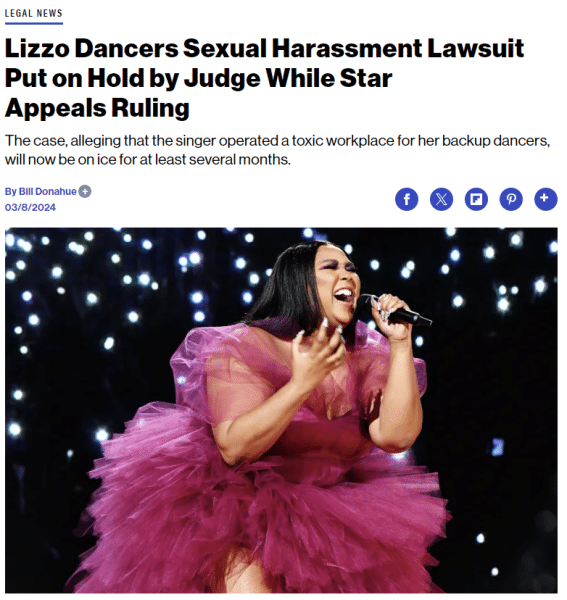
The controversy raises significant questions about power dynamics and legal protections in the entertainment industry. Lizzo, known for her advocacy of body positivity, faces criticism for her management practices and alleged inappropriate behavior, contributing to her polarizing presence amid ongoing speculation about her future in music. She even declared on Instagram “I quit”, leading to speculation she was leaving the music industry entirely, but later clarified she was quitting “giving any negative energy attention”.
As the allegations continue to unfold, they send ripples across the music industry, prompting discussions on how to foster safer and more equitable work environments for artists and performers.
What Can We Learn From the Lizzo Controversy?
The Lizzo controversy offers several crucial lessons for business leaders, particularly in the entertainment industry. From a business perspective, it’s imperative to treat staff with respect and ensure a healthy work environment. Allegations such as those involving Lizzo, ranging from disability discrimination to accusations of sexual harassment, underscore the importance of maintaining clear boundaries and fostering an environment where employees feel safe bringing forward concerns.
It’s vital that management teams and HR departments are equipped to handle such issues with sensitivity, impartiality, and diligence. Moreover, the controversy highlights the necessity for trust and transparency between a brand or individual and their community. Public figures such as Melissa Viviane Jefferson, known professionally as Lizzo, must navigate the complex dynamics between maintaining their creative voices and managing public perception.
The ramifications of allegations, be they regarding sexual harassment or dancer’s weight gain, can have lasting implications not only on the accused and defendants but also on the individuals making the claims, such as Arianna Davis and Crystal Williams. Whether or not these allegations are meritless or a dangerous attempt to silence creative voices, as Lizzo’s camp argued, businesses must ensure that they have robust systems for addressing such disputes.
The Los Angeles Judge Mark Epstein’s role in examining these situations underlines the legal standards necessary to not threaten free speech and prevent hostile work environments. Ultimately, while Lizzo’s case is still unfolding, it serves as a potent reminder for businesses about the importance of ethical management and the dangers of neglecting the welfare of their teams.
